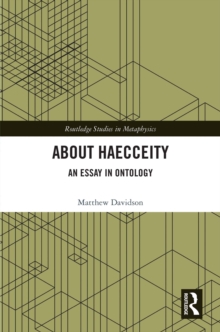
Philosophy of Time and Perceptual Experience EPUB
by Sean Enda Power
Part of the Routledge Studies in Metaphysics series
EPUB
Description
This book explores the important yet neglected relationship between the philosophy of time and the temporal structure of perceptual experience. It examines how time structures perceptual experience and, through that structuring, the ways in which time makes perceptual experience trustworthy or erroneous.
Sean Power argues that our understanding of time can determine our understanding of perceptual experience in relation to perceptual structure and perceptual error. He examines the general conditions under which an experience may be sorted into different kinds of error such as illusions, hallucinations, and anosognosia. Power also argues that some theories of time are better than others at giving an account of the structure and errors of perceptual experience. He makes the case that tenseless theory and eternalism more closely correspond to experience than tense theory and presentism. Finally, the book includes a discussion of the perceptual experience of space and how tenseless theory and eternalism can better support the problematic theory of naive realism.
Philosophy of Time and Perceptual Experience originally illustrates how the metaphysics of time can be usefully applied to thinking about experience in general. It will appeal to those interested in the philosophy of time and debates about the trustworthiness of experience.
Information
-
Download - Immediately Available
- Format:EPUB
- Pages:260 pages
- Publisher:Taylor & Francis
- Publication Date:06/02/2018
- Category:
- ISBN:9781351249478
Other Formats
- PDF from £35.99
- Hardback from £135.00
- Paperback / softback from £36.59
Information
-
Download - Immediately Available
- Format:EPUB
- Pages:260 pages
- Publisher:Taylor & Francis
- Publication Date:06/02/2018
- Category:
- ISBN:9781351249478










